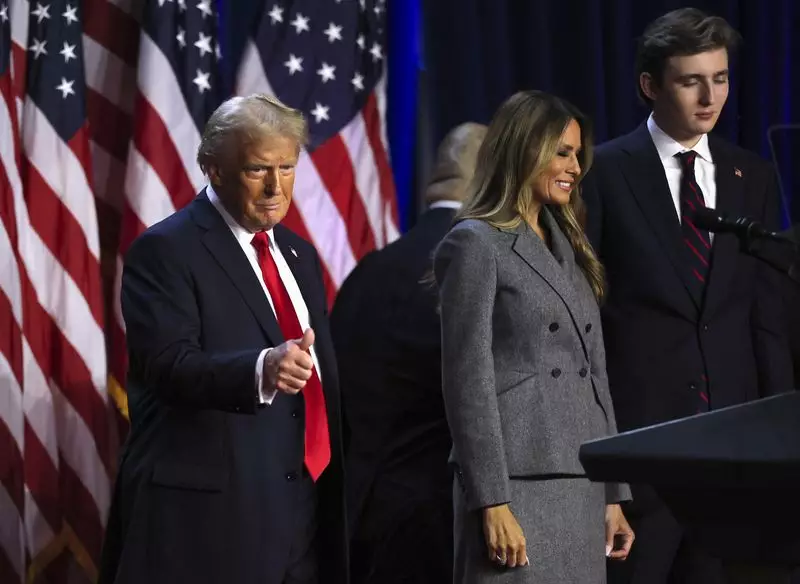The recent U.S. presidential election concluded with Republican candidate Donald Trump triumphing over Democrat Kamala Harris, leading to a complex array of implications for Sino-American relations. Trump’s victory, as observed, did not merely reaffirm his political capital but also intensified the landscape of global politics, where trade, technology, and security remain pivotal battlegrounds. Chinese analysts, while expressing concern over Trump’s mercurial policies, prepare for a future marked by both challenges and potential opportunities.
Understanding the Implications of Trump’s Victory
As Trump prepares for another term, Chinese strategists predict a tumultuous period ahead. Initially showing significant backing across various demographics and regions, Trump emerged with a stronger nationwide voter presence compared to his previous election cycle. This scenario poses a dual-edged sword for China; while traditional fears of economic fallout loom large, the possibility of a reduced American focus on global diplomacy might enable China to leverage its influence in other regions.
Tong Zhao, a senior fellow at the Carnegie Endowment for International Peace, articulated that although China’s leadership preferred a different outcome, they were not entirely blindsided by Trump’s reelection. The Chinese government is likely to project a facade of diplomatic cordiality with Trump, even as it seeks to advance its strategic interests and assert its global standing. This balancing act demonstrates China’s acute awareness of the importance of managing perceptions while working toward its ambitions.
One of the most pressing concerns emanating from Trump’s administration is his aggressive stance on tariffs, which may exceed a staggering 60% on Chinese imports. Such measures could trigger a confrontation reminiscent of the trade wars that marked the previous administration, radicalizing trade relations. China, heavily reliant on exports to the U.S., fears this escalation could deteriorate its economic stability, particularly as it grapples with domestic challenges.
As highlighted by Zhao, the backdrop of internal economic pressures within China heightens the stakes surrounding any potential trade conflict. The prospect of a trade war sends ripples of anxiety through Beijing, a city acutely aware of the symbiotic relationship with U.S. consumers. In response, China is expected to double down on its initiatives to foster economic independence and technological self-sufficiency, effectively gearing up for a prolonged economic standoff.
A notable element of the post-election analysis is the likely shift in China’s foreign policy focus. With Trump’s isolationist and often transactional approach to international relations, analysts suggest that this could provide China with an advantageous opportunity to expand its influence—particularly in regions where American presence might wane.
This reallocation of focus could materialize as stronger ties between China and emerging markets, particularly in the Global South. Additionally, Beijing appears to be smoothing relations with European partners and rekindling dialogues with Northeast Asian nations, including Japan and India—a tactic seen as both opportunistic and strategic. Under Xi Jinping’s leadership, China appears poised to reposition itself as a stabilizing force in global politics as the U.S. potentially recedes into a more insular posture.
In light of Trump’s likely disinterest in international agreements, China is well-positioned to exploit the ensuing power vacuums that such disengagement creates. Zhao’s commentary underscores how these dynamics could facilitate China’s ambitions to assert deeper influence among developing nations and those feeling the squeeze of American hegemony. The geopolitical landscape is ripe for reshaping, and China seems eager to capitalize on perceived vacuums left by a distracted or disengaged United States.
However, the assumptions surrounding Trump’s influence on Taiwan and related U.S. military policies add a layer of complexity to this narrative. As Washington solidifies its military commitments to Taiwan—a move seen as a strategic pivot from Trump’s previous stance—China remains vigilant. The potential for escalating tensions in the Taiwan Strait could serve as a litmus test for how relations evolve under a Trump presidency, ensuring that the stakes remain high for all parties involved.
As China braces for another four years of Trump, its strategies are likely to encompass both retaliatory measures pertaining to trade and efforts to reposition its global narrative. Understanding this intricate chess game of international relations is crucial, as the implications of Trump’s policies will reverberate far beyond American borders, shaping the contours of global diplomacy for years to come.

